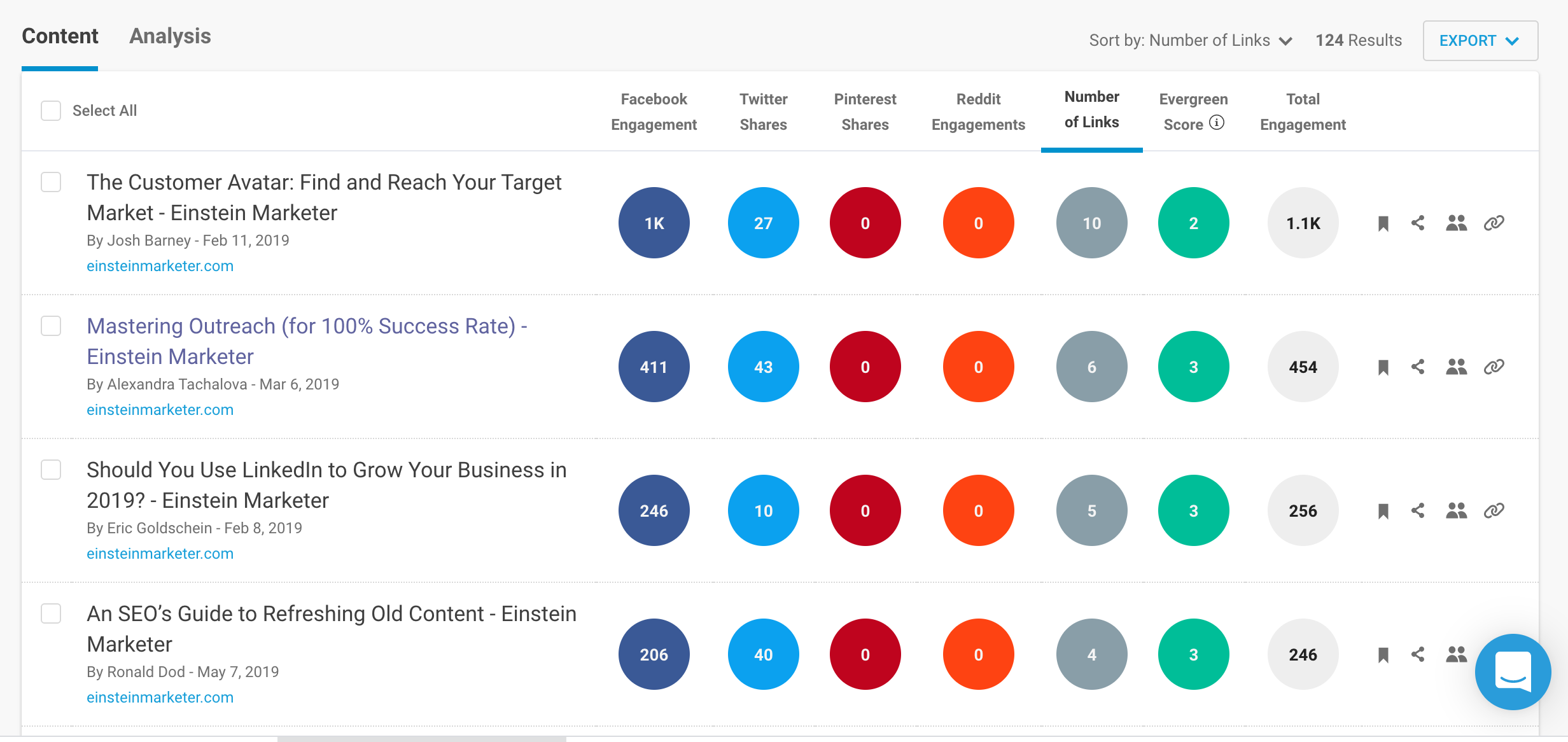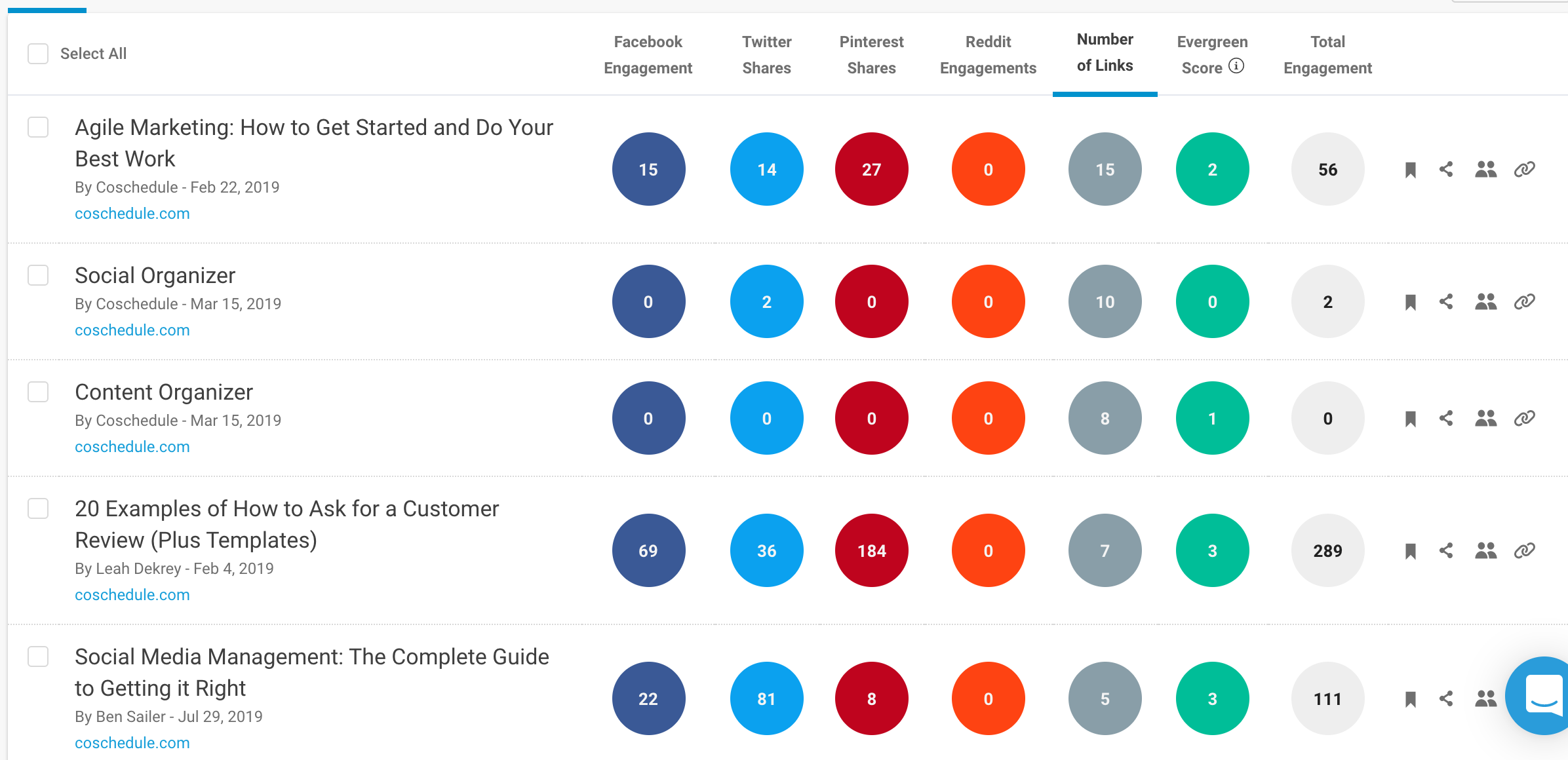06 Jan 5 Biggest Link Building Misconceptions That Keep Coming Up via @alextachalova
A few months ago, I was speaking at a big, well-known digital marketing conference. Apart from me, there were several other popular link builders speaking, some of which also run paid courses.
One of those experts shared a case study on how he had generated NNN links and got a solid growth of organic traffic to his site.
At a Q&A session, he was asked how he had managed to persuade so many people to give him a link. His answer was: “People were happy to give us a link because we promoted their content on our social media channels.”
At first, I thought that I misheard the guy because I knew for a fact that it didn’t exactly work this way.
We’ve spent the last few years mainly building links and I can hardly imagine anyone who would be happy to trade a link for a social share.
So it made me think:
- How many other detrimental misconceptions are there circulating in blogs and social media?
- How many people lose their time and money trying to follow those inaccurate recommendations?
With that thought in mind, I decided to collect the most common misconceptions about link building that I keep stumbling upon in my day-to-day work.
Misconception 1: Don’t Bother Building Links – If Your Content Is Truly Engaging & Insightful, Links Will Come
For sure, quality content deserves links.
But then why does the majority of content get zero links?
If you take any average blog and check the number of links that each of their posts has, you’ll most likely see something like this:


Here, I sorted the posts by the number of links and among 120 of them, only a few had more than 5 referring domains.
By the way, the second post on the list is delivered by me and the reason it has so many links is that I deliberately invested time into building them.
As a matter of fact, I contribute to a good number of blogs and love referring to them in my other guest posts.
That being said, not only small and medium-sized sites struggle with acquiring links.
Even popular blogs with a decent number of readers have trouble earning links organically, as it’s called.


As you can see, 15 is the biggest number of links that a post on coschedule.com could get, and this is actually not that bad if you know how things work in the industry.
Misconception 2: It Doesn’t Matter Whether You’re Buying or Earning Links
Many of my clients don’t see a difference between an earned link and a purchased one.
To them, a link is a link, no matter how they managed to get it.
Here I must note that this is a very slippery slope.
Earned links are a great long-term investment. They become more valuable over time because the sites that had given it to you grow their DR scores and organic traffic.
That is, a link earned at a site with a DR score of 39 gets more weight once their DR score rises to, say, 51.
As for the purchased links, you can’t be certain of what’s going to happen to the referring site in the future.
First of all, you need to understand that if they sold a link to you, they’re doing it to a whole lot of other websites. So, there’s no saying whether (or more likely when) they will be penalized by Google.
Moreover, the price per built and purchased link is currently at the same level, so there’s no sense in buying links, especially in the long run.
Misconception 3: The Best Links Come From Digital PR Campaigns
This statement is my personal “favorite”. I know many people who are ready to go with a 30k PR contract in order to build a few top-notch links.
If you’re one of them, I need to ask you this: have you thought about the limitations that digital PR bears?
Here are just a few, to begin with:
- You’re getting links only on media outlets. That is, there’ll be no links from industry niche blogs and corporate sites that are usually, let’s face it, are more relevant to your business.
- You’re building links to your main page or to a page with PR content. Normally, people want to improve the rankings of their already existing pages, but with a PR campaign, it’s rarely possible.
Plus, and it’s the most important part, the price of a link acquired during a digital PR campaign goes through the roof.
Long story short: many stars should align in order for you to get a substantial return on your investment into a PR campaign.
Misconception 4: The Best Way to Build Links Is by Doing Guest Blogging
Even though I regularly do guest blogging myself, I strongly disagree with the statement that this strategy can be the sole means of getting links.
How many guest posts can you produce on a monthly basis?
20? 30?
One person can only do so much.
Sooner or later, you’ll start thinking about outsourcing the production, which leads to a new set of challenges.
But mainly it takes us to the next question:
How many of those guest posts will actually be a good read?
Don’t forget that all of them will be associated with your brand name, that is, the reputational risks are as high as it gets.
Here are the problems that I see with guest posting:
- If you want to do it right and produce quality content, the price of a guest post goes way above average. Even if you create quality posts, it’s utmost impossible to scale it, which means you won’t be making enough links.
- For all your efforts and time spent on finding the right blog, establishing relationships with an editor etc. all you’ll be getting is one link per post. Not too huge of an ROI, right?
However, there are several things to optimize to streamline this process. If you’re curious to learn more, I’ve listed them in my post on doing guest blogging the right way.
Misconception 5: Reaching out to Relevant Blogs Is the Right Way to Secure Links
If only that were true!
Here’s a quick exercise for you: google “how to build links” and calculate how many of the blogs recommend pitching sites that are relevant to your content in order to build a link.
My guess is all of them.
Now, here comes the sad truth:
The response rate of such a pitch will be around 8%, according to the study by Brian Dean, one of the most experienced link building theorists in the industry.
Moreover, a response doesn’t equal a built link, which means that the bottom line number will be even smaller.
In my opinion, the game’s not worth the candle.
If you want to build a decent number of links, you’ll have to send thousands of emails, which can turn your link building campaign into a spamming one.
This is why we prefer to first connect with the people that are relevant to our client’s brand. That requires a lot of online and offline networking but leads to outstanding results.
People who know you and your brand are much more eager to respond to your link building pitch.
You should never forget about the relevance of the site’s content to the one that you’re pitching. The closer the topics are, the easier it will be to establish the connection.
Summing Up
Link building is a comprehensive task which demands for many specific, practical skills.
More than that, it is constantly evolving: common tactics get outdated as the practitioners invent new, more effective ways to build links.
However, the digital trace of the old practices is still out there reproducing misconceptions.
Even industry experts can fall short to tell the difference between an actual working tactic and a popular lie.
So, stay alert and don’t stop educating yourself on how to do link building the most effective way.
More Resources:
- Top 12 Link Building Mistakes In-House SEOs Make & How to Avoid Them
- 7 Popular Link Tactics that Might Not Work
- Link Building: How to Acquire & Earn Links That Boost Your SEO
Image Credits
Featured Image: Created by author, January 2020
All screenshots taken by author, January 2020
Sorry, the comment form is closed at this time.